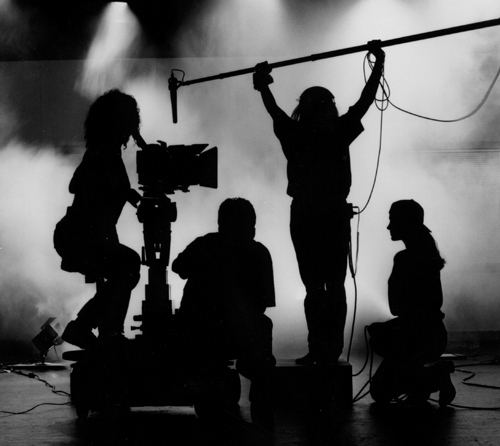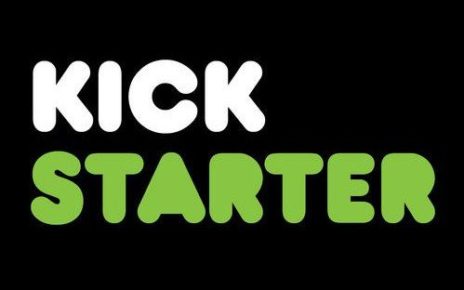When you have a very small budget for your first film, then you must learn to be budget-conscious with every scene, every move, every prop, every costume, actually…every single thing from pre to post production.
Concept:
From the moment you try to come up with a good concept for your kick-ass film, you should already take into consideration the possible expenses of each scene and think hard for alternative solutions. You have to work within your means and not go crazy with your marvelous idea. Remember, this is going to be your first feature length. That alone can be overwhelming so you better keep your concept simple, keep your dialogue short, have few locations, and less costume changes.
For now, forget the epic crowd scene, the elaborate rocket ship, the testosterone-overload car chase if you are not confident that you can execute them using a small amount of money. And what is ‘a small amount of money’ when you are making a film? Well, no amount is so small if you are making a film. You can definitely use a few dollars more for your distribution and promotion.
You have to deliberate each scene and ask yourself if the expensive scene is crucial in your story-it helps it move forward, it is a major conflict, a revelation, etc. or if the scene is just an embellishment. If you think it still works, it still conveys a good story even without the scene, then let go of it. You can save the expensive scene for later-when you have a good budget to be experimental without worrying much about money. Remember that although these scenes can entertain or can possibly wow the audience, what they are looking for is if you can tell a good story.
There are certain genres –like Sci-fi- that may look crappy if you place cheap props or graphics. Sci-fi requires lots of gloss and gadgets that might cost you big bucks so you might consider trying other genres for your first film. Unless, of course, if you don’t want to give yourself any deadlines for it or if you have a filthy rich sponsor.
When I think of concepts for my short films, I work on what I’ve already got. It is not as limiting as what others think-in fact, au contraire. Because I put certain boundaries to my concepts/ to my imagination, I start to think of creative ways to express my story without spending much.
I try to work on what’s already around me. I think about my house, my school, my country, my friends, my environment, my government, my childhood, and look for stories. There are millions of hidden stories there waiting for your attention. These kinds of stories do not cost much but these are the kinds that really stick to us. I personally prefer ‘finding’ stories than ‘inventing’ them. When you ‘find’ a story, you observe, research, you interview, you reach down to your heart and open it up to see what it has to contribute to what you have found.
Location: For the location, think of certain places where you can shoot for free and without much hassle. Your uncle’s best friend might have an old house on top of the hill that you can borrow for a week. Of course, there really isn’t such a thing as ‘free’ so you better prepare a simple token and a few extra dollars for the electivity you consumed. If you just grab what every kind person offers without giving them anything in return, then you will have a tough time asking help on your next film. It’s better to give a little something than just ‘thank you’.
It also helps when you think of the available location you have while you are still brainstorming. Sometimes, the location alone can inspire a very good story. You have to have lots of options and perform an ocular months before the actual schedule of filmmaking so the production design team and the location manager can do their job early on. You should also tag your cinematographer along so he would know how to light the location. If you have prepared the location months before the actual shoot, you will definitely save lots of dollars and you can foresee possible scenarios.
The Team:
Yes, your budget may be tight but you should not lower your team’s fee so much that they’d feel too overworked or that you are privileged to get their ‘help’. This may sound okay at first because it would cut you some dollars but people have the tendency to relax if they feel like they can. There are still those guys (friends!) who assure you that they’d ‘help out’ until the wee hours of the night but they’ve gone caput before dinnertime. Well, that’s life- they would not get the kind of glory you’ll get when your film becomes a success, anyway.
But to lessen your fears, get everything in writing-a contract. You do not want your Director of Photography or lead actor to evaporate on the set because of this and that. What would happen to your film? A single absence is a big loss to your film and to your drive to continue. Talk to the team one by one and tell them what you expect them to do, in return you pay them on time. After that, look at him/her in the eye and shake hands.
As the director, your concern is not only with the output, but also with the team’s well-being. If you think somebody is not happy, talk to them before the day ends. You also have to make your team’s stomach happy every time. I do not mean you give them expensive caviar, just decent meal and some snacks would do. Just make sure there’s plenty of food to go around. No one wants to work on an empty stomach. You can scrimp on the location and the special effects, but never on food…ever.
More tips for making films on a tight budget next week.
_________________________________________________________________
Unified Manufacturing is an L.A. -based one-stop-shop that offers very affordable CD/DVD/USB replication, custom printing, promotional products, warehousing and fulfillment and many more. If you need an Instant Quote on a project and you want FREE SHIPPING, simply CLICK HERE.




